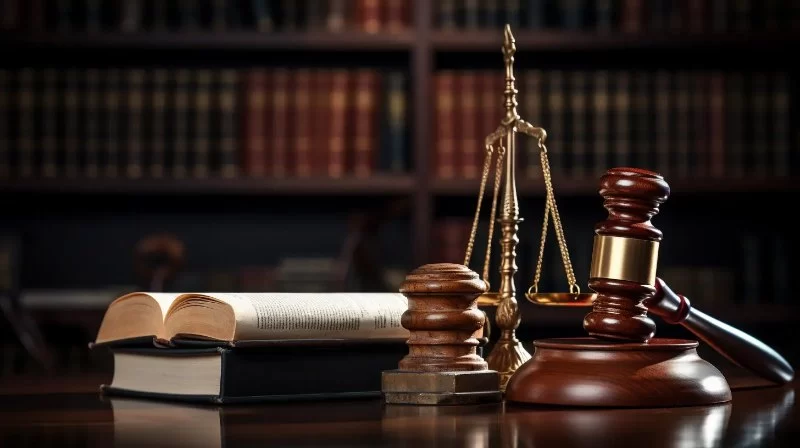- understanding-what-it-means-to-challenge-a-legal-judgment
- common-reasons-to-challenge-a-judgment
- legal-steps-involved-in-challenging-a-judgment
- real-cases-when-judgments-were-overturned
- importance-of-legal-counsel-and-strategy
- why-hiring-fred-miller-lawyer-can-make-the-difference
1. Understanding What It Means to Challenge a Legal Judgment
Facing an unfavorable court ruling can feel final—but it isn’t always the end. Learning how to challenge a legal judgment means understanding that you do have legal options. Whether it’s a civil judgment or a criminal sentence, there are structured legal avenues available for contesting the decision—through appeals, motions, or sometimes even retrials.
1.1 What Does “Challenge” Really Mean?
To challenge a judgment is to formally object to the outcome of a court decision. This can involve proving legal error, introducing new evidence, or questioning the fairness of the original trial.
1.2 Not Every Case Qualifies
It’s important to understand that not all judgments can be challenged. If your case lacks legal or procedural grounds, the court may deny your request. Timing is also critical, as appeals are subject to strict deadlines—typically within 30 days of the judgment.
2. Common Reasons to Challenge a Judgment
Certain legal or factual errors can make a judgment vulnerable to challenge. Below are some of the most frequent and successful grounds for appeal or reconsideration.
2.1 Legal or Procedural Errors
Was the law applied correctly? Did the judge follow proper procedures? If not, these mistakes can be the foundation for a challenge. For instance, if improper evidence was admitted, that could have unfairly swayed the outcome.
2.2 Ineffective Counsel
If your attorney failed to competently represent you—by not presenting key evidence, missing deadlines, or failing to object to damaging testimony—you may have grounds to argue for a reversal.
2.3 New Evidence Comes to Light
In some cases, new information or evidence can fundamentally alter the facts of the case. Courts may allow the reopening of a case if this evidence could not have been discovered previously with reasonable diligence.
2.4 Misconduct or Bias
Judicial bias, jury misconduct, or tampering may justify a challenge. Courts are obligated to offer fair trials, and any deviation from this principle can be a powerful basis for appeal.
3. Legal Steps Involved in Challenging a Judgment
Knowing how to challenge a legal judgment also means understanding the procedure behind it. Each step requires precision, evidence, and legal strategy.
3.1 Filing an Appeal
This is the most common method. An appeal must be filed in a higher court within a designated timeframe. You don’t present new evidence in an appeal—you argue that the lower court made an error in applying the law.
3.2 Motion for Reconsideration
If you believe the judge overlooked something crucial, a motion for reconsideration can be filed in the same court. This is often done before pursuing a full appeal.
3.3 Motion to Vacate or Set Aside
This route challenges the legitimacy of the original judgment, particularly in cases of fraud, clerical error, or lack of proper notice. It can be highly effective when used appropriately.
4. Real Cases When Judgments Were Overturned
In 2020, a man in Texas successfully overturned a judgment against him when his attorney proved that key evidence had been misinterpreted by the court. The appellate court agreed and reversed the decision, saving him hundreds of thousands in damages.
Another notable case involved a businesswoman who discovered that the opposing party had concealed financial documents during discovery. Her legal team filed a motion to vacate based on fraud, and the court reopened the case—ultimately ruling in her favor.
These stories show that with the right legal grounds and representation, a judgment doesn't have to be the final word.
5. The Importance of Legal Counsel and Strategy
Challenging a judgment is not something to navigate alone. You’re facing a system that requires deep understanding of legal precedent, filing procedures, and persuasive writing.
5.1 Deadlines Are Critical
One of the most common reasons challenges fail is missing the appeal window. Every jurisdiction has its own rules, and you typically have only a few weeks to act. Time lost is often opportunity lost.
5.2 Strategy Is Everything
Even if you're emotionally certain the judgment is unfair, the court won’t reverse it unless there’s a strong legal basis. A skilled attorney will help identify your strongest arguments, avoid procedural missteps, and frame your appeal effectively.
6. Why Hiring Fred Miller Lawyer Can Make the Difference
When you're considering how to challenge a legal judgment, experience matters. Fred Miller Lawyer is known for his meticulous approach to appeals and post-trial motions. His team analyzes every element of a case—from trial transcripts to procedural timelines—to uncover any missteps that may justify overturning a judgment.
Clients routinely praise Fred Miller for his strategic thinking, courtroom clarity, and tenacious pursuit of justice. Whether you're facing a wrongful civil decision or need to appeal a criminal conviction, Fred Miller Lawyer offers the expertise and dedication that could turn your case around.
If you believe a court has ruled against you unfairly, don’t wait. Let Fred Miller Lawyer evaluate your case and guide you toward the legal remedy you deserve.


 kurczaba attorney
kurczaba attorney brandon j broderick llc
brandon j broderick llc austin miller attorney
austin miller attorney lavonda graham williams attorney
lavonda graham williams attorney services offered by morgan and morgan philadelphia
services offered by morgan and morgan philadelphia david pedrazas reviews
david pedrazas reviews